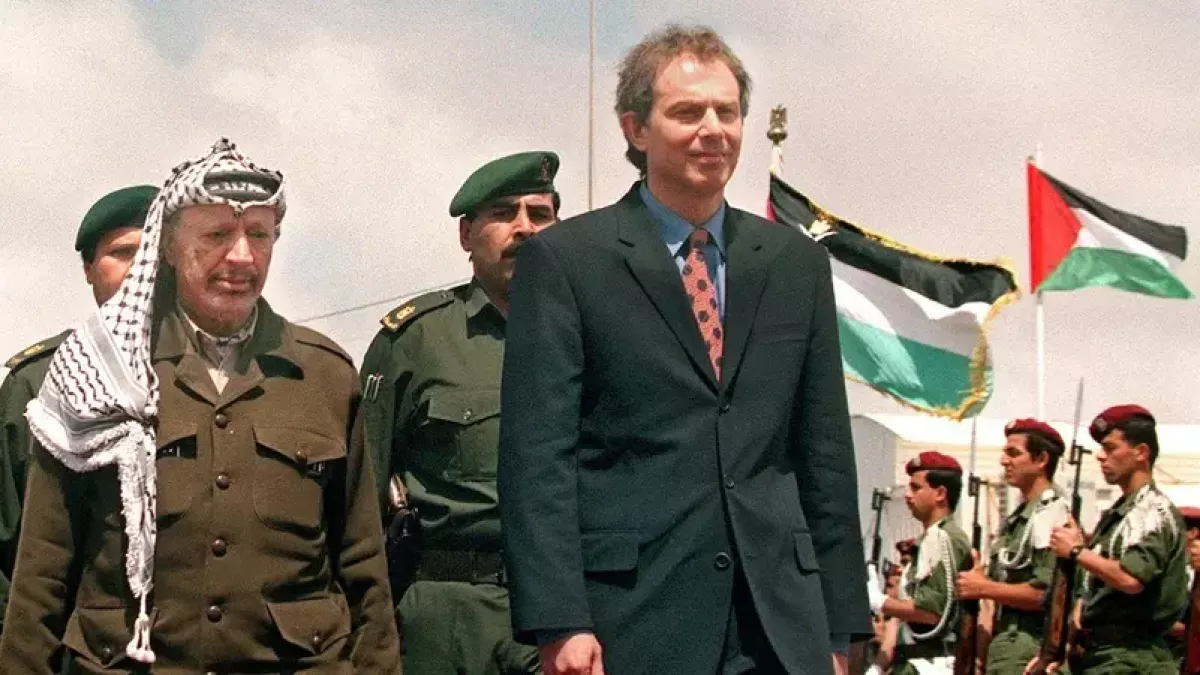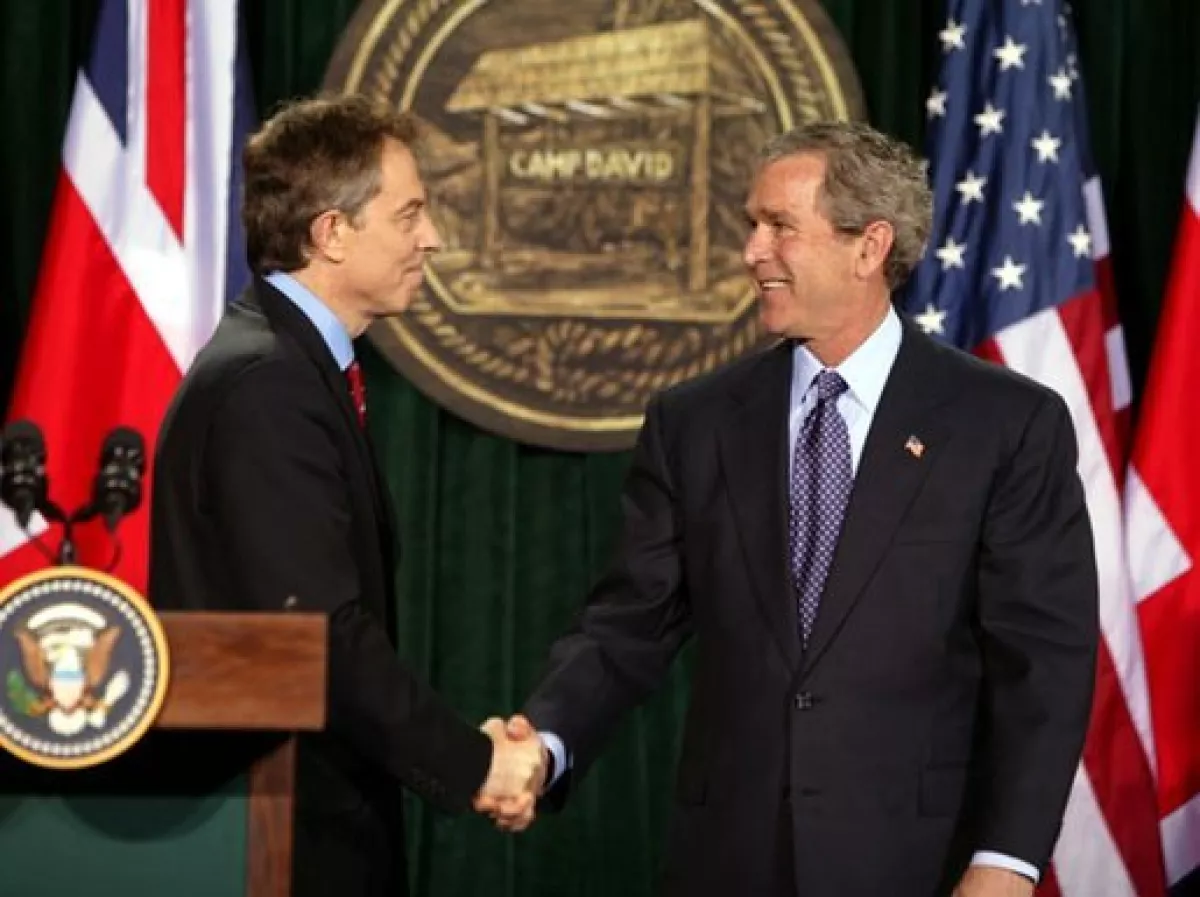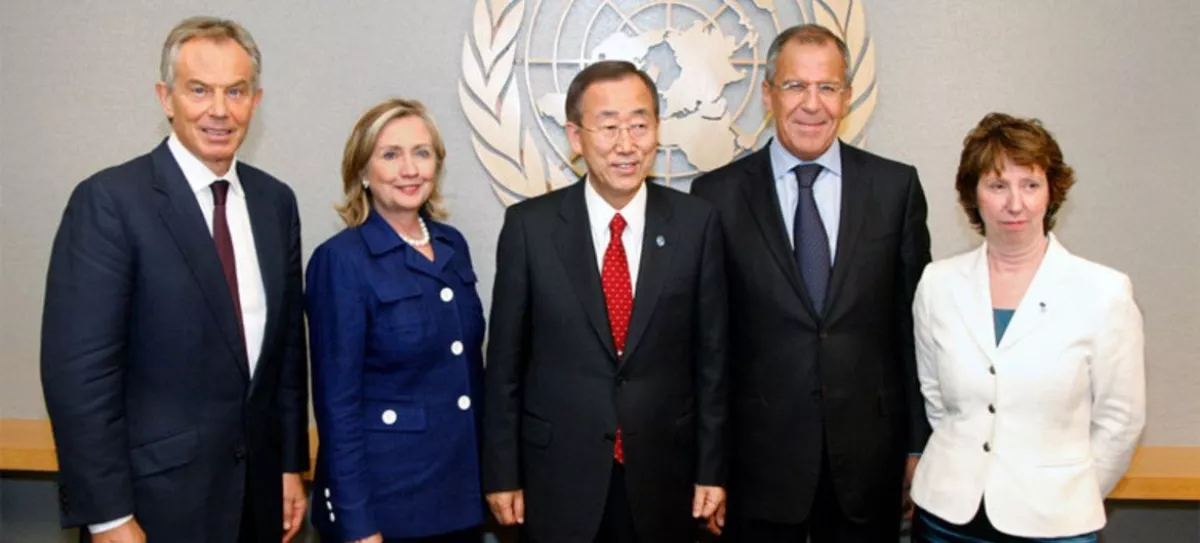Tony Blair’s return to the Middle East Will his experience prove to be asset or liability for Gaza’s recovery?
The 20-point framework to end Israel’s war in Gaza and oversee the rebuilding of the Gaza Strip, jointly unveiled by the leaders of the US and Israel on September 29, reintroduces a figure long familiar to the region—though one whose legacy continues to divide opinion.
Tony Blair, who served as the UK’s Prime Minister from 1997 to 2007, could take a seat on Trump’s “Board of Peace” alongside the US President as chair and other yet-to-be-named members, according to the proposal.
The initiative has already won support from Israel and garnered broad international backing, most notably by several major Arab and Muslim-majority states but the Gaza-based Hamas militant group has yet to provide their formal response. Israel’s condition that neither Hamas nor the Palestinian Authority (PA) be given administrative control of Gaza is a central feature of the updated plan, which revises the earlier 21-point draft released only weeks ago.
Though Blair has kept a relatively low profile within British politics, he has remained active internationally through his eponymous non-profit institute and as a longtime player in Middle Eastern diplomacy, most notably as a peace envoy for the “Quartet.” The former PM held that role for eight years, acting on behalf of the US, the EU, Russia, and the United Nations.
Middle East experience as a double-edged sword
According to the new 20-point plan set out by US President Donald Trump and Israeli Prime Minister Benjamin Netanyahu, Blair’s decades of experience in the Middle East make him uniquely qualified. However, as the Times of Israel (TOI) notes, while some see his expertise as an asset, others argue it is also his greatest liability.
Blair’s engagement with the Palestinian issue stretches across his years in office, his time as the Quartet's envoy, and his private consultancy work. As PM, he backed the Oslo Accords and met with former Israeli leader Ehud Barak and former Palestinian President Yasser Arafat. He also urged then–US President George Bush to adopt a “road map for peace,” which was an unfulfilled plan that aimed to end Israeli settler expansion in the West Bank, reduce conflict with Palestinian militants, and outline guidelines for Palestinian statehood.

When Blair entered office in 1997 as head of the Labour Party, he declared, “Mine is the first generation able to contemplate the possibility that we may live our entire lives without going to war or sending our children to war.” Yet as The Times publication establishes, he had sent British troops into more conflicts than any UK leader since World War II by the end of his decade in power.
Most notably, Blair aligned the UK with the US-led invasion of Iraq in 2003, despite widespread domestic opposition. The war, justified on claims of Iraqi weapons of mass destruction later proven false, cost the lives of 179 British soldiers, roughly 4,500 Americans, and hundreds of thousands of Iraqis.
A 2016 inquiry led by civil servant John Chilcot concluded that Blair took Britain to war on flawed intelligence and “before the peaceful options for disarmament had been exhausted.” The report did not, however, label the war illegal, which might have opened the door to war-crimes charges.
Before the Iraq War, Blair was credited with helping secure the 1998 Good Friday Agreement that ended decades of violence in Northern Ireland. That same year, he and the US launched a bombing campaign against Saddam Hussein’s regime over weapons inspections. In 1999, his government participated in NATO’s bombing of Yugoslavia. In 2000, he sent troops to back Sierra Leone’s government during its civil war, and in 2001 Britain joined the US invasion of Afghanistan after the September 11 attacks.

After resigning in 2007 amid sinking approval ratings, greatly tied to the unpopular war in Iraq, Blair became the Middle East envoy for the Quartet. The body’s official mission was to support “the Palestinian people to build the institutions and economy of a viable, peaceful state in Gaza and the West Bank, including East Jerusalem,” according to its website.
While his tenure began with optimism, TOI observes that his efforts soon became bogged down in disputes over trade and movement in the West Bank, as well as challenges in Gaza, then already under Hamas rule and subject to blockade by Israel and Egypt.
"Blair’s experience in British politics and name recognition offered hope that he had the charisma and connections that might bring progress. But his work became mired in skirmishes over issues such as the movement of Palestinian goods and people in the West Bank, and dealing with the difficulties of a Gaza Strip ruled by the Hamas terror group and blockaded by Israel and Egypt," the publication argues.

Critics have long contended that while Blair promoted Palestinian economic development, he failed to rein in Israeli settlement expansion or deliver meaningful progress toward Palestinian statehood. He resigned from the envoy role in 2015, though he remained engaged in the region through the Tony Blair Institute for Global Change, advising Gulf governments and launching interfaith education projects in both Israel and the Palestinian territories.
What the transitional board could look like under Blair
During his joint press conference with Netanyahu, Trump confirmed that the 20-point plan calls for a new international oversight body, the “Board of Peace,” to be led by the US President himself, with Blair as his first publicly revealed member.
Though the full details behind the plan remain undisclosed, The Economist reported—citing unnamed sources—that Blair could head a Gaza International Transitional Authority (GITA). This entity would seek UN approval as Gaza’s “supreme political and legal authority” for a five-year mandate. If created, Blair would lead a 25-person secretariat and chair a seven-member board supervising Gaza’s governance, funded largely by Gulf states.
According to those reports, GITA would be modelled on international administrations that guided East Timor and Kosovo toward statehood. Initially, it could be based in El-Arish, the Egyptian city near Gaza’s border, and would move into Gaza alongside a multinational force once conditions allowed. The plan specifies that Palestinians would remain in Gaza, that the West Bank and Gaza would be reunited, and that eventual control would pass to the PA.
Despite his controversial reputation in the Arab world and the lingering shadow of Iraq, Blair has continued to play a behind-the-scenes role in Middle East diplomacy. Since the Hamas-led attacks of October 7, 2023, he has made multiple trips to Jerusalem, drafted proposals through his London foundation, and quietly advised Trump’s White House. He has maintained close ties to Jared Kushner, Trump’s son-in-law, and special envoy Steve Witkoff, both deeply involved in Israel-Palestine policy. Reports of his participation surfaced as early as 2024, including sightings at meetings with Netanyahu and former Defence Minister Benny Gantz.
Whether Blair’s past will hinder his role in postwar Gaza remains uncertain, as the world now awaits Hamas’s official response to the 20-point peace initiative.
By Nazrin Sadigova








